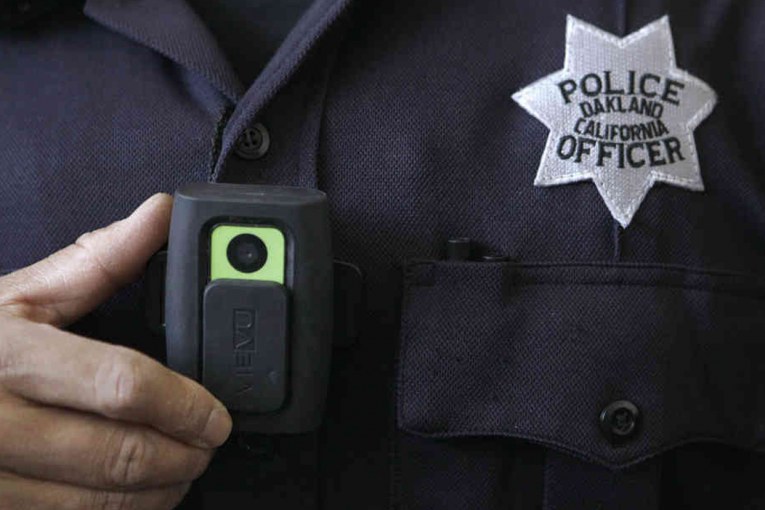

This summer, when Assistant Chief Darren Pytel presented the Davis Police potential body-worn camera policy, he had to address the issue of the release of the video to the public.
Assistant Chief Pytel said, “The biggest concern [of having the body-worn cameras] is having realistic expectations from the community that there are going to be incidents that are recorded, that doesn’t ultimately mean there is going to be video that is released right away.”
In some cases, with huge public demand, information would be released extremely quickly. “Because the video does exist, people want to make up their own minds and see it right away,” he said, “even though there’s legal justification or public policy consideration for not immediately releasing video.”
“I also think we’re going to start balancing people’s voyeuristic attitudes,” he said, where people take the position that a “juicy” story translates to a public need to see the video. “A lot of times those are going to be cases where there is a heightened expectation of privacy.”
Darren Pytel said, in terms of policy for video release, “as much as possible we’re going to follow the Public Records Act which exempts a vast majority of the video having to be released in criminal cases.”
As we have previously reported, the Public Records Act is likely to prohibit the release of most video as exempt under a number of different clauses of the PRA.
One thing that the Vanguard did not contemplate is that some footage would be disclosable under the PRA but subject to high costs.
The ACLU has released a press release on a lawsuit they filed against the Hayward Police Department over “unlawful and excessive costs as the price of disclosing body worn camera footage requested under the California Public Records Act (PRA).”
“The Public Records Act and police body cameras have one thing in common: both are intended to promote government transparency and accountability. This common purpose will be thwarted if Hayward is allowed to impose exorbitant costs for the public disclosure of police body camera footage,” said Alan Schlosser, Senior Counsel with the ACLU of Northern California.
He added, “Such a hefty price tag will put these public records beyond the reach of most Californians, including journalists investigating possible instances of excessive force by police.”
The suit alleges that, on Jan. 27, 2015, the National Lawyers Guild (NLG), San Francisco Bay Area Chapter, submitted a PRA request to the Hayward PD for body-worn camera footage from Hayward police officers who participated in crowd control during demonstrations in December of 2014 to protest the refusal of grand juries to indict police officers involved in the deaths of two African-American men, Michael Brown and Eric Garner.
A number of protesters were injured by the police during these demonstrations. On May 15, 2015, Hayward PD informed the NLG that they would have to pay the department $2,938.58 in order to receive the first round of body camera footage requested.
The NLG paid this amount under protest, and faces similar costs for the additional video footage requested.
“In the wake of Ferguson, outfitting police officers with body cameras is a tactic widely supported to address problems of police brutality and repair the public’s dwindling confidence in law enforcement. But the positive impact of body cameras on public trust and truth finding is directly undermined when the public cannot get access to the videos, whether because the police unlawfully refuse to release them entirely, or only release the footage they want the public to see, or try to charge excessive costs for footage as Hayward is doing,” said Rachel Lederman, NLG chapter president.
Under the PRA, government agencies are limited to charging only for the direct cost of duplicating records. For records in an electronic format, the law also allows additional charges for producing records that require data compilation, extraction, or programming.
Since the body camera footage requested by the NLG did not require any of those steps, the ACLU and the Law Offices of Amitai Schwartz are asking that Hayward PD refund the NLG for the costs that fall outside the direct costs of duplication, that the department disclose the additional requested videos without imposing these unauthorized costs, and that the Alameda Superior Court issue a declaratory judgment that imposing the kinds and amount of costs that Hayward imposed on the NLG violates the PRA.
The issue of fees is not a new issue and it often straddles the line between protecting public agencies, against staff time and duplication costs from at times excessive requests, and preventing and discouraging citizen access to legitimate public documents.
What will be interesting to see is what footage is exempt under the PRA and what footage will have to be disclosed.
—David M. Greenwald reporting

this is really interesting. the complaint here is not that they rejected the request for the documents, but rather the cost to provide them. i don’t think davis has as lenient a policy on the provision of documents.
What is also interesting is not disclosing why the ACLU, the Attorney, and others (including VG) have reason to believe that the costs were excessive. They may be. Was there demonstrable evidence that the fees exceeded the PRA requirements? Saw none in the ‘reporting’…
My guess is that common knowledge regarding the procedures necessary to copy and deliver digital video constitutes prima facie evidence that $3k is excessive.